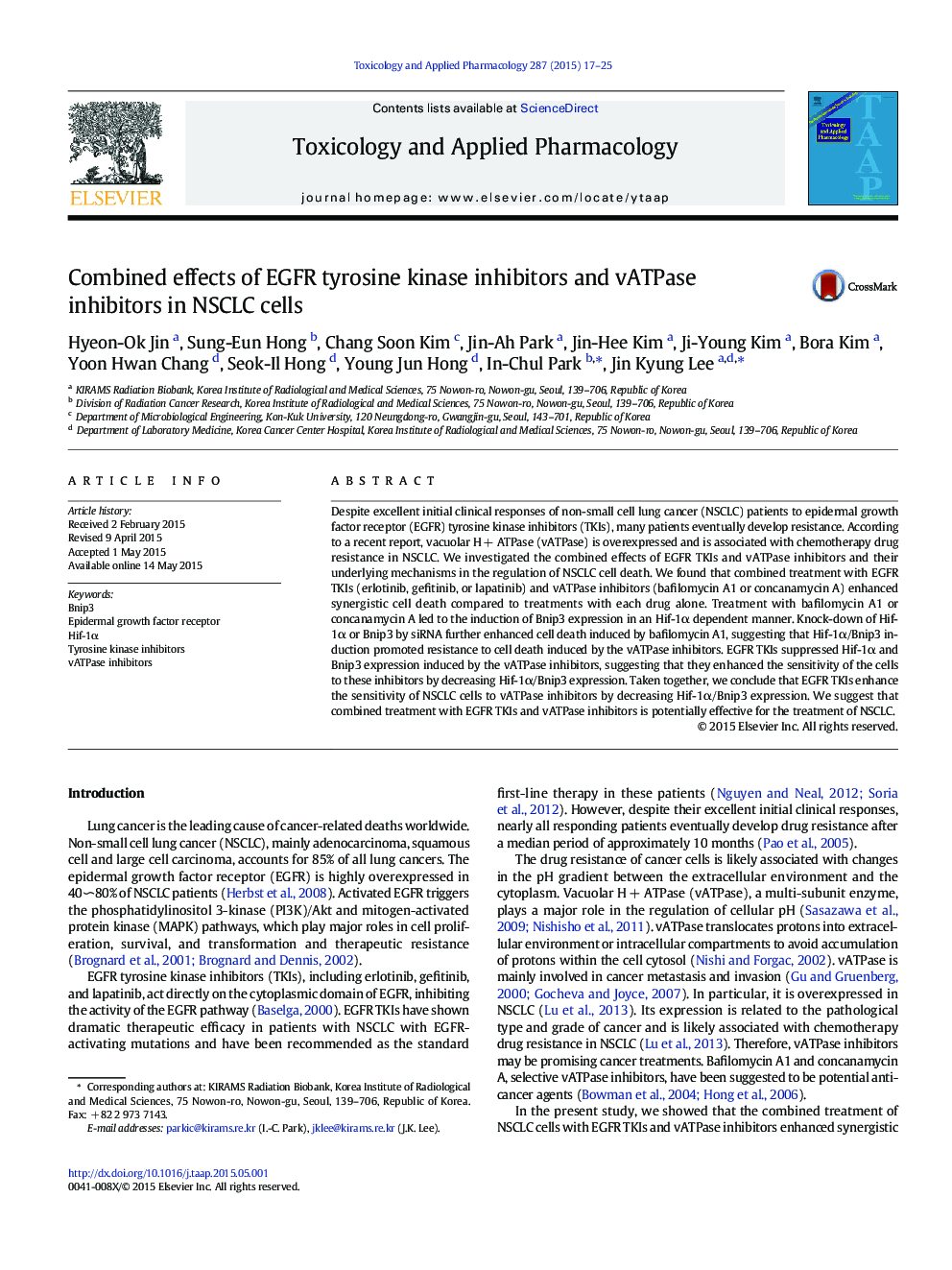| Article ID | Journal | Published Year | Pages | File Type |
|---|---|---|---|---|
| 5846026 | Toxicology and Applied Pharmacology | 2015 | 9 Pages |
Abstract
Despite excellent initial clinical responses of non-small cell lung cancer (NSCLC) patients to epidermal growth factor receptor (EGFR) tyrosine kinase inhibitors (TKIs), many patients eventually develop resistance. According to a recent report, vacuolar H + ATPase (vATPase) is overexpressed and is associated with chemotherapy drug resistance in NSCLC. We investigated the combined effects of EGFR TKIs and vATPase inhibitors and their underlying mechanisms in the regulation of NSCLC cell death. We found that combined treatment with EGFR TKIs (erlotinib, gefitinib, or lapatinib) and vATPase inhibitors (bafilomycin A1 or concanamycin A) enhanced synergistic cell death compared to treatments with each drug alone. Treatment with bafilomycin A1 or concanamycin A led to the induction of Bnip3 expression in an Hif-1α dependent manner. Knock-down of Hif-1α or Bnip3 by siRNA further enhanced cell death induced by bafilomycin A1, suggesting that Hif-1α/Bnip3 induction promoted resistance to cell death induced by the vATPase inhibitors. EGFR TKIs suppressed Hif-1α and Bnip3 expression induced by the vATPase inhibitors, suggesting that they enhanced the sensitivity of the cells to these inhibitors by decreasing Hif-1α/Bnip3 expression. Taken together, we conclude that EGFR TKIs enhance the sensitivity of NSCLC cells to vATPase inhibitors by decreasing Hif-1α/Bnip3 expression. We suggest that combined treatment with EGFR TKIs and vATPase inhibitors is potentially effective for the treatment of NSCLC.
Related Topics
Life Sciences
Environmental Science
Health, Toxicology and Mutagenesis
Authors
Hyeon-Ok Jin, Sung-Eun Hong, Chang Soon Kim, Jin-Ah Park, Jin-Hee Kim, Ji-Young Kim, Bora Kim, Yoon Hwan Chang, Seok-Il Hong, Young Jun Hong, In-Chul Park, Jin Kyung Lee,
